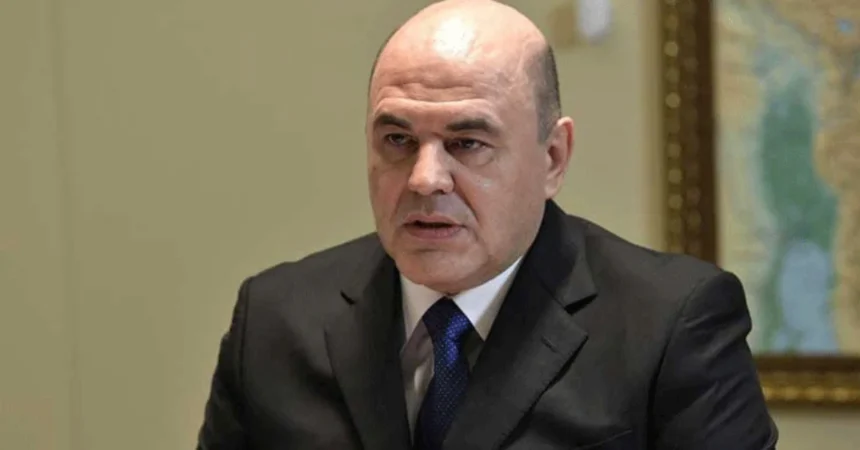The upcoming Shanghai Cooperation Organization (SCO) meeting is set to be a pivotal event in regional diplomacy, bringing together leaders from various member states to discuss cooperation on security, economic growth, and cultural exchange. Among the high-profile attendees, Russian Prime Minister Mikhail Mishustin is likely to visit Pakistan, highlighting the strengthening ties between the two nations.
The SCO, founded in 2001, is a political, economic, and military alliance comprising China, India, Russia, and several Central Asian nations. Its primary focus has been on promoting stability and security in the region, combating terrorism, and fostering economic cooperation among its member states. The inclusion of Pakistan in this forum has provided the country with a platform to engage with major regional powers and address shared challenges.
Significance of Mishustin’s Visit
Mikhail Mishustin’s anticipated visit is a testament to the growing relations between Pakistan and Russia, particularly in light of recent geopolitical developments. This visit is expected to solidify existing partnerships and open new avenues for cooperation in various sectors, including trade, energy, and security.
The timing of this visit is also significant. With the ongoing shifts in global power dynamics and the increasing importance of regional alliances, Mishustin’s presence in Pakistan could signal a commitment to deeper collaboration. It underscores the mutual interests of both countries in fostering stability in the region and promoting economic growth.
Russia-Pakistan Relations: A Historical Perspective
Historically, the relationship between Russia and Pakistan has been complex, marked by periods of both cooperation and tension. During the Cold War, Pakistan aligned itself with the United States, while Russia supported India. However, the end of the Cold War and subsequent geopolitical shifts have led to a reevaluation of bilateral ties.
In recent years, both nations have sought to improve their relationship, recognizing the importance of collaboration in a rapidly changing world. High-level visits and diplomatic engagements have become more frequent, and joint initiatives in various sectors have gained momentum.
The SCO has played a crucial role in fostering dialogue between Pakistan and Russia, providing a platform for both countries to engage in discussions on security and economic issues. The organization’s focus on combating terrorism and ensuring regional stability aligns with the priorities of both nations, making their partnership increasingly relevant.
Key Areas of Cooperation
1. Economic Collaboration: Economic cooperation has emerged as a cornerstone of the Pakistan-Russia relationship. Both countries have expressed interest in enhancing trade and investment ties. Recent years have seen discussions on various projects, including energy initiatives and infrastructure development.
The establishment of a Pakistan-Russia Business Council has facilitated dialogues between business leaders, promoting trade opportunities and investment. This body aims to reduce trade barriers and create a conducive environment for bilateral economic exchanges.
The energy sector holds significant potential for collaboration, with Russia being a key player in global energy markets. Pakistan’s growing energy needs and Russia’s expertise in oil and gas production create opportunities for joint ventures and investments.
2. Defense and Security: Defense cooperation is another vital area in which Pakistan and Russia are seeking to strengthen their ties. Both countries have a shared interest in combating terrorism and ensuring regional stability.
Recent military exercises between Pakistan and Russia have laid the groundwork for enhanced defense collaboration. These joint drills provide valuable opportunities for both nations to share knowledge and strengthen their military capabilities.
As regional security dynamics evolve, it is crucial for Pakistan and Russia to collaborate on counter-terrorism efforts and intelligence sharing. This partnership can enhance the effectiveness of their respective security strategies and contribute to regional peace.
3. Cultural and Educational Exchange: Cultural diplomacy is gaining traction as both nations seek to foster mutual understanding and appreciation. Initiatives aimed at promoting cultural exchange through art, education, and tourism can enhance people-to-people connections between Russia and Pakistan.
Scholarships and academic programs have been established to facilitate educational exchanges, allowing students from both countries to study in each other’s institutions. These programs promote greater awareness of each other’s cultures and histories, contributing to long-term bilateral relations.
Cultural festivals showcasing the art, music, and traditions of both countries can also play a role in building stronger ties. By celebrating shared values and experiences, Pakistan and Russia can cultivate a sense of camaraderie and mutual respect.
Regional Security Challenges
The security landscape in South Asia is characterized by complex challenges, including terrorism, territorial disputes, and geopolitical rivalries. Pakistan and Russia face common threats that necessitate collaboration and coordination.
The ongoing situation in Afghanistan remains a significant concern for both countries. The Taliban’s return to power has created uncertainties regarding security and stability in the region. Both nations are interested in promoting peace in Afghanistan and preventing the resurgence of extremist groups that could destabilize the region.
The SCO’s emphasis on collective security provides a framework for addressing these challenges. By working together within this organization, Pakistan and Russia can engage in dialogue with other member states to develop joint strategies for countering terrorism and ensuring regional stability.
Energy Cooperation: A Strategic Focus
Energy security is a critical area for both Pakistan and Russia, given their respective energy needs and resources. Pakistan has been grappling with energy shortages, while Russia is one of the world’s largest energy producers. The two countries have the potential to collaborate on various energy projects that could benefit both economies.
The construction of gas pipelines and energy infrastructure is a priority for Pakistan, and Russian investment in these initiatives could provide much-needed support. The Pakistan Stream Gas Pipeline, for example, aims to transport natural gas from Russia to Pakistan, significantly enhancing the latter’s energy security.
Moreover, cooperation in renewable energy sources, such as wind and solar, can also be explored. Both countries can share expertise and technology to develop sustainable energy solutions that align with global environmental goals.
Implications for South Asian Geopolitics
Mishustin’s visit and the evolving relationship between Russia and Pakistan have implications for the broader geopolitical landscape in South Asia. As these two countries strengthen their ties, the dynamics of regional alliances and rivalries may shift.
The engagement of Russia in South Asia could provide Pakistan with additional leverage in its dealings with other powers, particularly India and the United States. A closer partnership with Russia may enhance Pakistan’s strategic options and provide an alternative source of support in the face of evolving security challenges.
Conversely, India has historically maintained a strong relationship with Russia. The growing cooperation between Pakistan and Russia could prompt India to reassess its own strategies in the region, potentially leading to a recalibration of alliances and partnerships.
As the anticipation builds for Mikhail Mishustin’s visit to Pakistan for the SCO meeting, the prospect of strengthened ties between Russia and Pakistan offers a glimpse into a future of increased collaboration. The discussions that take place during this visit are expected to lay the groundwork for new initiatives across various sectors, enhancing economic cooperation, defense collaboration, and cultural exchange.
In a world marked by uncertainty and shifting power dynamics, the evolving relationship between Pakistan and Russia underscores the importance of regional alliances and partnerships. As both nations navigate the complexities of the 21st century, their collaboration within the SCO and beyond will play a crucial role in shaping the future of South Asia.
#RussiaPakistanRelations #SCO2024 #MikhailMishustin #BilateralCooperation #EnergySecurity #DefenseCollaboration #CulturalExchange #SouthAsiaGeopolitics #Terrorism #RegionalStability #EconomicGrowth







